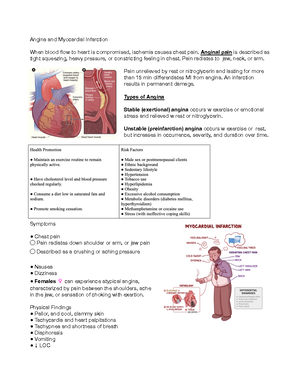- Information
- AI Chat
Was this document helpful?
Remediation ATI Mental H
Course: Nursing (Nur1)
121 Documents
Students shared 121 documents in this course
University: St. Mary's School of Nursing
Was this document helpful?

ATI MENTAL HEALH REMEDIATION
Legal and Ethical Issues: Communicating Across Language Barriers (RM MH RN
11.0 Chap 2 Legal and Ethical Issues)
A nurse who works in the mental health settings is responsible for practicing
ethically, competently, safety and in manner consistent with all local, state, and
federal laws. Nurses must have an understanding of ethical in mental health
settings.
Legal and Ethical Issues: Informed Consent for Electroconvulsive Therapy (RM
MH RN 11.0 Chap 2 Legal and Ethical Issues)
The client also has various specific rights, including the following: informed
consent and the right to refuse treatment, confidentiality, written plan of
care/treatment that includes discharge follow up, as well as participation in the
plan of care and review of that plan.
Legal and Ethical Issues: Applying Restraints (RM MH RN 11.0 Chap 2 Legal and
Ethical Issues)
Seclusion or restrain is for the shortness duration necessary and only if less
restrictive protection of the client and or the protection of other clients and staff.
Nurse responsibility: assessed (safety and physical needs).
Offered food and fluid, toileted, monitored vitals sings.
Monitor for pain.
Complete documentation every 15 to 30min/
Legal and Ethical Issues: Indications for Removing Restraints (RM MH RN 11.0
Chap 2 Legal and Ethical Issues)








